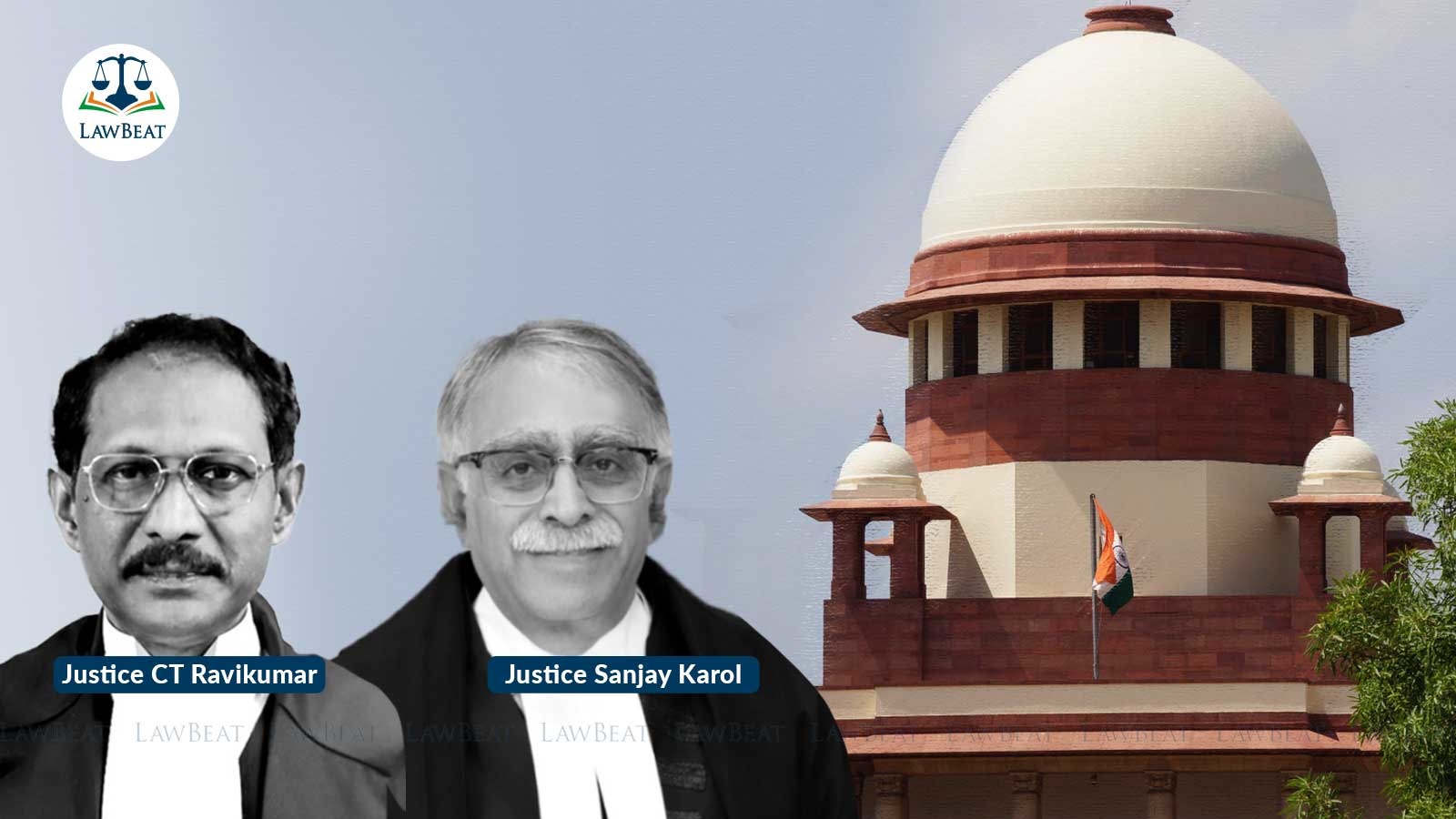'Succession can't go forward without determination of the Will': SC allows amendment to plaint

SC stressed that a liberal approach is to be adopted in consideration of such applications
The Supreme Court recently observed that a Will must be respected, and if any party affected by its implementation contests it on any grounds, the succession process cannot proceed until the dispute is resolved.
A bench of Justices C.T. Ravikumar and Sanjay Karol upheld the Madhya Pradesh High Court's order dated August 21, 2019, which permitted the amendment of the plaint in a lawsuit, dismissing an appeal filed by Dinesh Goyal, also known as Pappu.
The court emphasized that while a liberal approach should be taken in granting leave to amend pleadings, such amendments must remain within the statutory limits placed on this authority.
In the present case, the application filed by plaintiff-respondent Suman Agarwal (Bindal) under Order VI Rule 17 of the Code of Civil Procedure, 1908, was allowed, thereby setting aside the order issued on March 14, 2018, by the Civil Judge, Class-2, Gwalior.
The appellant and respondents, siblings and children of Smt. Katoribai, were involved in a dispute regarding a house in Gwalior. On January 14, 2013, Smt. Katoribai executed a Will, bequeathing the disputed property to the defendant-appellant. Respondent Suman filed a suit claiming a 1/5th share of the property, asserting that it belonged to her late father.
The defendant-appellant filed a written statement praying that the suit be dismissed in view of the mother's Will.
The plaintiff Suman filed an application under Order VI Rule 17 read with Section 151 CPC seeking amendment of her plaint to add a list of movable properties in the property sought to be partitioned as part of the suit, as also questioned the genuineness of the Will.
The civil court dismissed the application which was, however, allowed by the high court.
Examining the appeal by defendant-appellant, the court referred to Order VI Rule 17 CPC and said amendment of pleadings can be allowed at any stage; amendment must be necessary to determine the “real question of controversy” “inter se parties”; if such amendment is sought to be brought after commencement of trial the court must, in allowing the same come to a conclusion that in spite of best efforts on the part of the party to the suit, the same could not have been brought before the point of time, when it was actually brought.
The court cited Life Insurance Corporation of India Vs Sanjeev Builders Pvt Ltd & Anr (2022), which culled out the principles, among others, that the court should avoid a hyper-technical approach; ordinarily be liberal, especially when the opposite party can be compensated by costs.
It had also been held that amendment may be justifiably allowed where it is intended to rectify the absence of material particulars in the plaint or introduce an additional or a new approach and that the amendment should not change the cause of action, so as to set up an entirely new case, foreign to the case set up in the plaint.
In the case at hand, the bench said, "By way of the amendment, what is sought to be done is, to question the validity of the Will, on the basis of which, the defendant sought to have the suit dismissed, while also expanding the scope of adjudication of the suit to include movable property."
It has to be then, demonstrated that determination of the genuineness of the Will is the necessary course of action in determining the issues inter se the parties; and given the finding of the court below that the application was presented post the commencement of the trial, it could not have been, despite due diligence, presented prior to such commencement, the bench noted.
The court stressed that a liberal approach is to be adopted in consideration of such applications.
It also said, "Any and all delays in judicial processes should be avoided and minimised to the largest extent possible, and should generally be, and are rightly frowned upon. However, not in all cases can delay determine the fate of a Suit".
The defendant-appellant, on his part, submitted that the time gap between submitting the written statement to the Suit and the presentation of the application seeking leave to amend was unexplained.
The bench, however, said, "If this argument of the defendant is accepted, the question of Will shall remain undecided or at best will be decided with great delay. The trial which has admittedly already commenced, would be stalled by way of a challenge to the framing of issues which, in turn, would not be in consonance with the object of Order VI Rule 17 of CPC which is aimed at preventing multiplicity or multiple avenues of litigation, subsumed under the umbrella of one dispute."
Since without determination of the question of Will and its genuineness, the partition of the Suit property would not be possible, the bench found no infirmity in the order of the high court, allowing the amendment setting aside refusal of the trial court to grant such amendment.
The bench thus allowed the amendment and directed the trial court to decide all issues including the genuineness of the Will, expeditiously.
The court clarified that its discussion was only in connection with the application under Order VI Rule 17 CPC and no opinion, whatsoever, has been expressed on the merits of the case.
Case Title: Dinesh Goyal @ Pappu Vs Suman Agarwal (Bindal) & Ors
